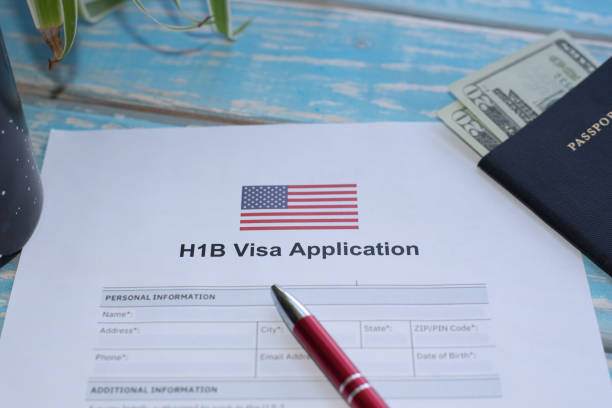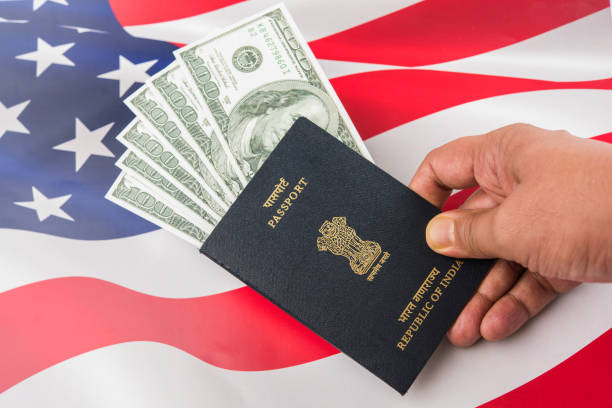Is it Worth Immigrating to the U.S. on an H-1B Visa?
Is it Worth Immigrating to the U.S. on an H-1B Visa?
The H-1B visa is one of the most popular work visas for skilled professionals looking to work and live in the United States. It offers foreign nationals the opportunity to work in specialized roles in fields like technology, healthcare, and finance, providing an essential pathway for global talent to contribute to the U.S. economy.
However, with its complex application process, lottery-based selection, and restrictions, many prospective immigrants wonder if this visa is worth pursuing. This article explores the H-1B visa’s advantages and challenges, its impact on visa holders, employers, and family members, and whether it’s a worthwhile option for skilled workers.
What is the H-1B Visa?
The H-1B visa is a non-immigrant visa that allows U.S. companies to employ foreign workers in specialty occupations requiring theoretical and technical expertise. Typical fields include IT, finance, engineering, and science. To qualify, applicants must have at least a bachelor’s degree or equivalent experience in a specific field, and employers must demonstrate that they need a skilled foreign worker for the role.

Benefits of the H-1B Visa
Benefits for the Visa Holder
- Career Advancement: The H-1B visa opens doors to work in some of the most competitive industries globally, especially in tech and finance. Many professionals experience substantial career growth, with opportunities to work at top-tier companies and access cutting-edge projects.
- Path to Permanent Residency: The H-1B visa offers a pathway to the coveted U.S. green card, which can lead to permanent residency. Employers often sponsor H-1B visa holders for green cards, providing a long-term opportunity to settle in the U.S.
- Competitive Salary and Benefits: H-1B visa holders are entitled to fair wages, as the visa mandates that employers pay them salaries comparable to those of their American counterparts. This helps protect foreign workers from wage exploitation and ensures they benefit financially.
- Professional Networking: Working in the U.S. provides access to a vast network of industry professionals, opening avenues for collaboration and skill development that can be valuable for one’s career, even if they choose to return to their home country eventually.
Benefits to the Employer
- Access to a Global Talent Pool: The H-1B visa allows U.S. employers to recruit skilled professionals from around the world, filling roles that require specialized expertise. This access is essential for many companies, especially those in industries facing domestic talent shortages.
- Innovation and Competitiveness: Employing H-1B workers can enhance a company’s ability to innovate and stay competitive, particularly in technology and research-intensive sectors where specific skills are in high demand.
- Cost-Effective Solutions: While the H-1B visa process incurs fees, hiring an H-1B worker is often a cost-effective solution for employers facing talent shortages. These workers are highly skilled and can fill gaps quickly, reducing downtime and enhancing productivity.
- Diversity and Global Perspective: H-1B employees contribute diverse perspectives and skills, enriching workplace culture and fostering a global mindset within organizations. This diversity can be a powerful asset in developing products and services for a global market.
Benefits to Spouses and Family Members
- Dependents’ Visa (H-4): Spouses and children under 21 of H-1B visa holders can accompany them to the U.S. on H-4 visas. This enables families to stay together while the H-1B holder works in the U.S.
- Employment Authorization for Spouses: In many cases, H-4 visa holders (spouses) are eligible to apply for Employment Authorization (EAD), allowing them to work legally in the U.S. This benefit can be a significant financial and professional advantage, helping families build a life together.
- Access to U.S. Education for Children: Children on H-4 visas can enroll in U.S. schools, which can offer high-quality education and broader opportunities. Many children of H-1B visa holders grow up with access to U.S. educational resources and opportunities that can positively impact their future.
Pros of the H-1B Visa
Career Opportunities in the U.S.
The United States is home to some of the world’s largest and most influential companies in various sectors such as technology, finance, healthcare, and engineering. With an H-1B visa, skilled professionals can work in these high-paying, prestigious roles. The U.S. economy, driven by innovation, offers a wealth of opportunities that may not be readily available in other countries.
Companies like Google, Microsoft, Amazon, and Apple, among many others, regularly sponsor H-1B visa holders for positions that require advanced technical skills. For many, the opportunity to work in the U.S. provides an invaluable career boost, offering access to advanced technologies, world-class colleagues, and cutting-edge projects.
Pathway to Permanent Residency (Green Card)
One of the major advantages of the H-1B visa is that it serves as a stepping stone to U.S. permanent residency (a green card). After a few years, many H-1B visa holders are sponsored by their employers for permanent residency. The green card allows individuals to work and live permanently in the U.S., offering long-term stability and access to benefits like healthcare, education, and social security.
Though the green card process can be lengthy and complicated, especially for nationals of countries like India and China, it is one of the most reliable routes for foreign workers seeking to settle permanently in the U.S.
Dependents’ Opportunities (H-4 Visa)
An often-overlooked benefit of the H-1B visa is the opportunity it provides to the visa holder’s family. The spouse and children under the age of 21 can accompany the H-1B visa holder to the U.S. on an H-4 visa. While H-4 visa holders cannot automatically work, spouses of H-1B visa holders can apply for an Employment Authorization Document (EAD) under certain conditions, allowing them to work in the U.S.
This opens the door for the family to contribute economically while living together in the country. Children under the age of 21 can also attend school in the U.S., giving them access to some of the best educational systems in the world.

Job Security and Benefits
H-1B visa holders are generally entitled to similar rights and benefits as U.S. workers. This includes fair wages, benefits such as healthcare, and the ability to participate in employer-sponsored retirement plans. The U.S. government requires employers to provide salaries at or above the prevailing wage rate for the position, ensuring that H-1B workers are paid fairly.
Job security is also a significant benefit: many H-1B visa holders are able to transition to permanent residency status, which further secures their future in the U.S.
Challenges and Drawbacks of the H-1B Visa
Lottery and Quota Limitations
One of the biggest challenges of the H-1B visa is the annual cap on the number of visas issued. The U.S. only grants a limited number of H-1B visas each year which is currently set at 65,000 new visas annually, with an additional 20,000 available for individuals with advanced degrees from U.S. institutions.
The demand for H-1B visas far exceeds the supply, leading to a lottery system. This means that even if an applicant meets all the qualifications, their chances of receiving a visa are still largely based on luck. The cap creates uncertainty and stress for many applicants, particularly those who are highly qualified but may not win the lottery.
Job Dependency and Restrictions
The H-1B visa ties the individual to a specific employer. If an H-1B visa holder decides to change jobs, they must apply for a new visa with the new employer. This dependency on a single employer can lead to a lack of flexibility, making it difficult for workers to explore other opportunities without navigating complex bureaucratic processes.
If an H-1B holder loses their job or is laid off, they may have only a limited time to find another employer to sponsor them, or they may need to leave the country. This can be a significant source of stress, especially during times of economic uncertainty or company layoffs.
Long Wait Times for Green Cards
Although the H-1B visa provides a pathway to permanent residency, the process can be long and complicated, especially for applicants from countries with high demand for green cards, such as India and China. In some cases, it can take over a decade for an applicant to receive their green card.
This long wait can be frustrating for individuals who want to settle permanently in the U.S. or make long-term plans for their family. During this period, H-1B visa holders often find themselves in a state of limbo, with no clear timeline for when they might obtain permanent residency.
High Cost and Uncertainty of Application
The H-1B visa application process can be costly for both the applicant and the employer. Applicants may need to pay fees for visa processing, legal services, and other expenses. Employers also face significant costs in sponsoring an H-1B worker, including legal fees and administrative expenses. Additionally, the uncertainty of the lottery system means that applicants may spend a lot of time and money on a process that is ultimately outside their control.
Is It Financially Worthwhile?
The financial benefits of the H-1B visa depend on several factors, including the applicant’s profession, the company they work for, and their lifestyle. Generally, salaries for H-1B workers are competitive, particularly in high-demand industries like tech and healthcare. In addition to the salary, employees often receive benefits such as healthcare coverage, paid time off, and retirement contributions, which add to the overall value of the job.
However, the cost of living in major U.S. cities like San Francisco, New York, and Los Angeles can be high, and this needs to be weighed against the salary being offered. In contrast, smaller cities or less expensive regions may offer a more affordable lifestyle.
The tax system in the U.S. also affects take-home pay, with federal and state taxes reducing an H-1B holder’s income. Nonetheless, for many skilled workers, the financial and professional benefits outweigh the costs.
What are the Alternatives to the H-1B Visa?
For those seeking to work in the U.S. but find the H-1B process too complicated or uncertain, there are alternative visa options. The L-1 visa allows multinational companies to transfer employees to U.S. offices, while the O-1 visa is designed for individuals with extraordinary abilities in fields like science, business, or the arts. Additionally, the EB-5 visa provides a direct path to permanent residency for investors willing to invest significant capital in U.S. businesses.
Other countries like Canada, Australia, and the U.K. also have work visa programs that may be easier to navigate and less competitive than the H-1B. These countries offer skilled worker pathways that may be worth considering, depending on the applicant’s field and goals.
Frequently Asked Questions (FAQs)
Can H-1B visa holders switch employers?
Yes, H-1B visa holders can change employers, but the new employer must file a new H-1B petition. The individual can begin working for the new employer once the new petition is filed and approved.
What is the process for H-1B dependents to work in the U.S.?
Spouses of H-1B visa holders on an H-4 visa may be eligible to apply for an Employment Authorization Document (EAD), allowing them to work in the U.S.
How long can someone stay on an H-1B visa?
An H-1B visa is typically issued for an initial period of three years, which can be extended to a maximum of six years. After six years, the individual must leave the U.S. unless they are in the process of applying for a green card.
What happens if an H-1B holder loses their job?
If an H-1B holder loses their job, they generally have a 60-day grace period to find a new employer or change their visa status. If they do not secure a new position, they must leave the U.S.
Conclusion
The decision to immigrate to the U.S. on an H-1B visa depends on many personal and professional factors. While the visa offers great career opportunities, a path to permanent residency, and valuable benefits for dependents, it also comes with challenges such as a lottery-based selection process, job dependency, and long wait times for green cards.
For skilled professionals in industries where demand is high, the H-1B visa can be an excellent way to advance one’s career and establish a life in the U.S. However, potential applicants should weigh the pros and cons and consider alternative options before making their decision.


